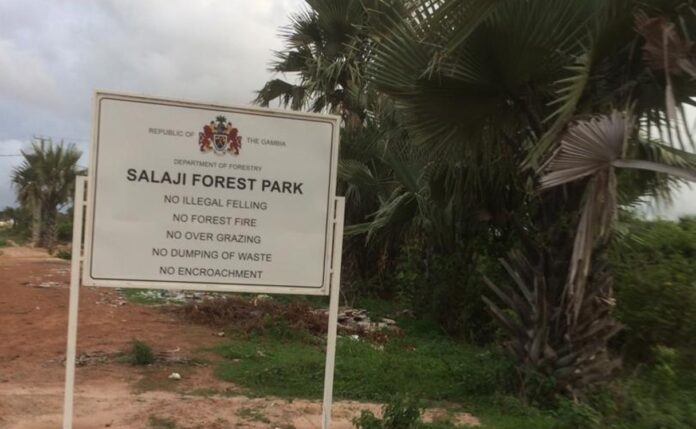Demystifying the Government Gazette and reclaiming land rights in The Gambia
By Dave Manneh – Research Lead
Securing Futures: Land Rights Action Collaborative
When I spoke with a few people from Sukuta recently, their voices were thick with sorrow. “Our ancestral land, with cultural and historical significance is gone forever,” they lamented,” chunks of Salagi Forest Park has been given to Abubakarr Jawara of GACH Global; and gazetted.”
For them, the word ‘gazetted’ feels like a final sentence, sealing their ancestral lands away without hope. But what does “gazetted” actually mean? Why does the Government Gazette hold such power in their minds — and why should we all care?
Gambians, like citizens of many postcolonial nation-states, often misunderstand the gazette as an unchallengeable legal decree. Nothing could be further from the truth. It is simply an official government announcement. Think of it as a public notice, like a newspaper announcement, informing citizens about their government’s decisions. It does not create laws or grant rights. Instead, it signals that a legal process, such as compulsory land acquisition, has reached a formal stage.
So, why does the Gazette inspire such fear and confusion in communities across Kombo?
The answer lies in the lack of civic knowledge, civic empowerment and colonialism. This practice of official government publications dates back centuries — from the Acta Diurna of ancient Rome and the handwritten avvisi of Renaissance Venice, to the Oxford Gazette/London Gazette in the 1660s Britain). These early forms set a precedent for public notices that states/governments continue to use today.
The Romans brought it to Britain, and British Empire carried this system into its colonies, including The Gambia. After independence, as with much of Gambia’s postcolonial statecraft, this colonial relic remained. Worse still, none of the three regimes since the Gambia’s attainment of “independence” have explained the true role and limits of the Gazette — to enable citizens’ understanding of the medium and its essence.
This gap between reality and perception matters deeply. When a community hears “gazetted,” they hear finality, a loss they cannot fight. They feel excluded from decisions that threaten their homes and heritage. And all too often, the state and state officials exploit this misunderstanding, allowing them to take communal lands without transparent consultation or consent.
Is it not time we changed that? Shouldn’t a democratic society empower its citizens with clear, accessible information, especially when lands and livelihoods are at stake? What if Gambians’ gaining a better understanding of the Gazette becomes the first step toward reclaiming lost rights?
Demystifying the Gazette is not just a legal or academic exercise — it is a matter of justice and respect. Communities deserve to know what decisions affect them, how the state makes those decisions, and what options remain open. The Gazette should be a tool for transparency and dialogue, not a cloak of silence.
At Securing Futures, we will collaborate with communities to bridge this knowledge gap.
The path forward requires openness, education, and meaningful participation. Let us transform the Gazette from a symbol of exclusion into a beacon of justice. Policymakers, community leaders, and civil society must prioritise transparent gazetting processes and ensure that no community faces land decisions in the dark.
Securing Futures: Land Rights Action Collaborative (SFLRAC) is an NGO-think tank hybrid. Committed to empowering Kombo’s dispossessed land-owning communities, SFLRAC combines participatory action with rigorous research to secure ancestral land rights, advocate for equitable governance policies, protect cultural heritage, and advance sustainable development.
The views expressed in this article are the author’s own and do not necessarily reflect The Fatu Network’s editorial stance.




